
Glossary of Terms: NCTSN Measures Review Database
Is a list of terms found within the Measures Review Database (MRD). This fact sheet defines various terms from the MRD to help users better understand the measures reviews.
The following resources on child trauma were developed by the NCTSN. To find a specific topic or resource, enter keywords in the search box, or filter by resource type, trauma type, language, or audience.

Is a list of terms found within the Measures Review Database (MRD). This fact sheet defines various terms from the MRD to help users better understand the measures reviews.
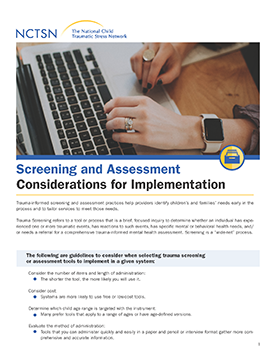
Gives providers considerations for implementing screening and assessment into their work. This fact sheet offers guidelines to consider when selecting trauma screening or assessment tools to implement in a given system.
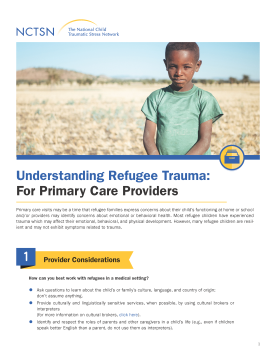
Outlines different considerations that primary care providers need to take into account when working with refugee youth and their families.
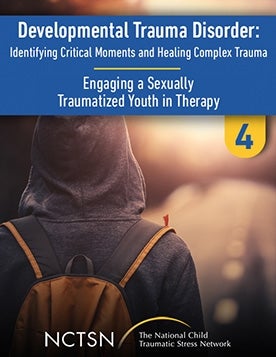
Depicts a youth who is referred to therapy after several weeks of unexplained sickness. This webinar shows a youth who was already seeing a therapist to work on recent difficulties in school and conflicts with his parents.

Offers tips for media professionals covering traumatic events. This fact sheet discusses safety, managing exposure, interviewing children, and helping families with children.
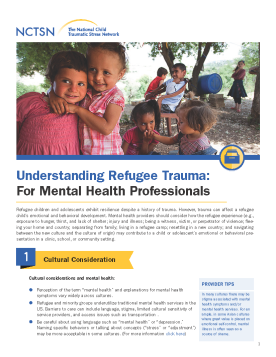
Outlines different considerations that mental health professionals need to take into account when working with refugee youth and their families.
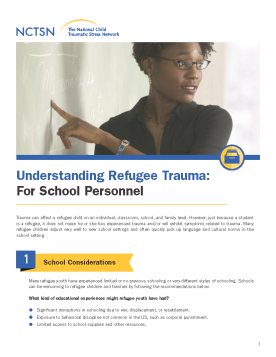
Outlines different considerations that school personnel need to take into account when working with refugee youth and their families. This fact sheet describes the school, classroom, individual, and family considerations that school staff should understand when working with this population.
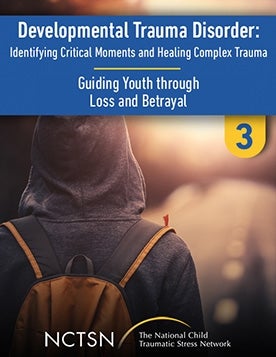
Depicts a client as she reveals, during her first therapy session, that she discovered her adoptive mother hid letters from her biological mother.

Provides a glossary of terms for healthcare providers to better understand the concepts within trauma-informed integrated care.
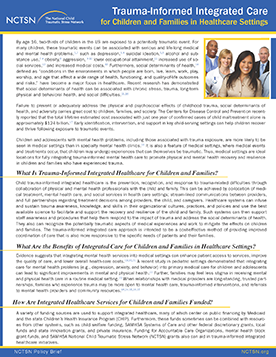
Provides policymakers and other stakeholders an overview of trauma-informed integrated care and its importance for children who have experienced trauma.
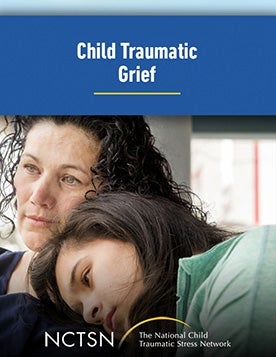
Provides an overview of issues specific to military culture and family life, describes two models for treating military children with traumatic grief, and highlights a service member's experience.
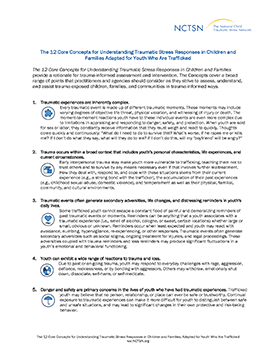
Outlines and describes a range of points that practitioners and agencies should consider as they strive to assess, understand, and assist youth who are trafficked.